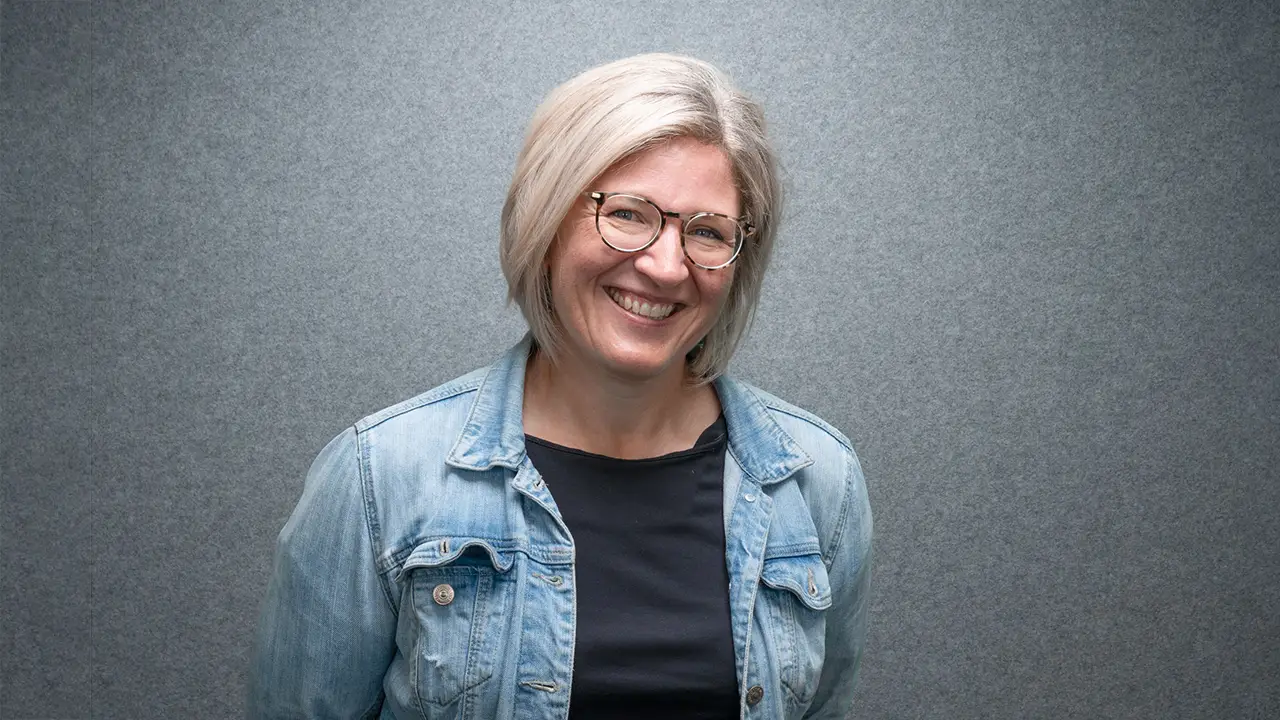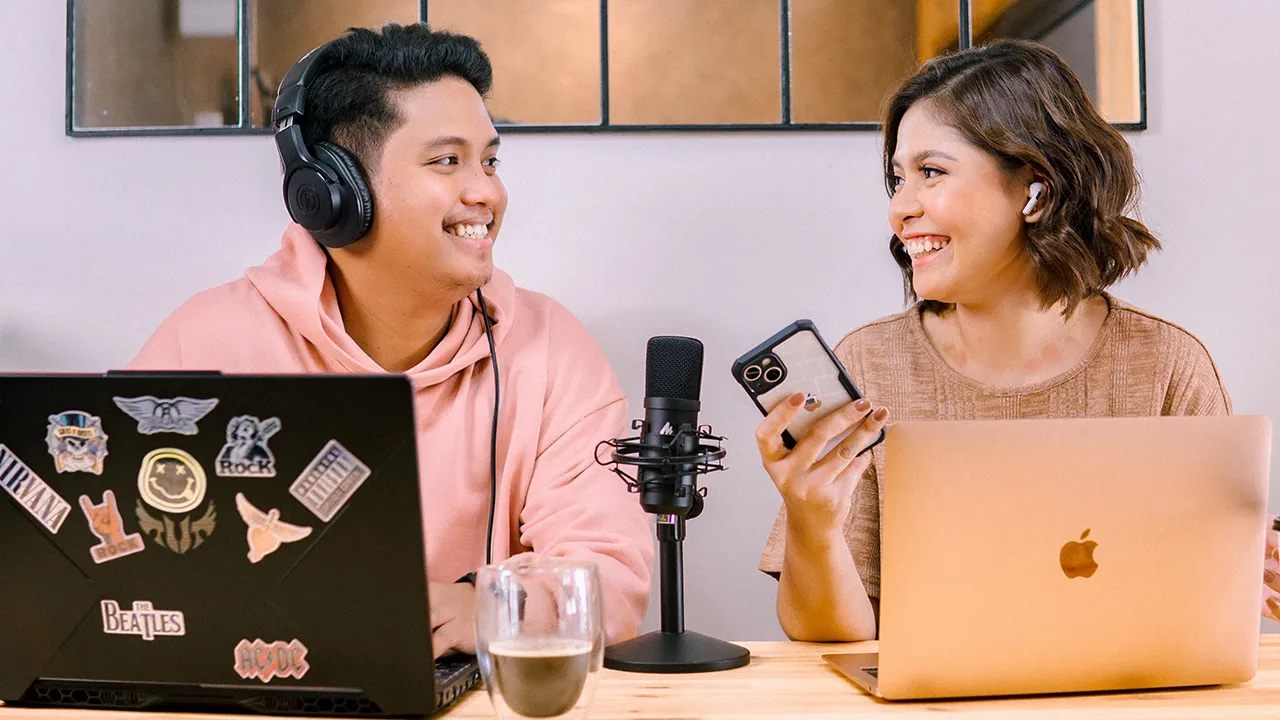Sprachwellen: Crafting German skills through podcasts and storytelling
A Professional Teaching Fellow in School of Cultures, Languages and Linguistics, Mareike Schmidt, is transforming German language learning through creative media and explorations of German culture in Aotearoa, New Zealand. Determined to showcase its relevance and value, she added relational pedagogies and technology-enhanced learning (TEL) to her curriculum, crafting collaborative, authentic projects that spark excitement and sense of ownership in her students.

Background
Making German ‘cool’ again: The podcast project
Joining the University in 2021 amidst the COVID-19 pandemic, Mareike found herself teaching remote advanced German courses (GERMAN 302 and 306). Undeterred by the disruption, she looked for a way to make online learning more engaging for both her students and herself. She came up with the idea of creating a podcast. Recognising the appeal of the ‘podcast’ label, she challenged her students to collaborate on creating one (while, technically, they would be creating an audio file not hosted on any podcasting platforms, producing a ‘podcast’ sounded more ‘cool’). Students were asked to team up to create, by semester’s end, a German podcast on a topic of choice in alignment with their course reader.

Self-driven projects to empower students
This project wasn’t just about language acquisition—it became a springboard for relational learning, intrinsically motivated exploration, and project-based, goal-oriented experiences. Students honed their reading, writing, listening, and speaking skills through research, scriptwriting, and reflection. The iterative nature of podcast production empowered them to overcome speaking anxieties, a common hurdle for language learners.
Student autonomy and collaboration were central. Early in the semester, teams presented their chosen topics to the class, fostering understanding and shared learning. As the project unfolded, students surprised Mareike with their creativity and dedication, exceeding expectations and forging stronger bonds with each other and the subject matter.
Assessment through teamwork and individual self-reflection
The ‘podcast portfolio’ held significant weight in the overall assessment (30%), complementing more traditional methods like grammar tests, essays, and oral exams. The portfolio itself comprised several parts: the script, audio recording, show notes (collaboratively created), and individual self-reflections assessing personal learning journeys. These self-reflections were no novelty for Mareike’s students, accustomed to regular ‘learning journal’ entries from day one in their first-year German courses (e.g., GERMAN 101).
Meaningful German: Finding connections in the everyday
Creative projects, too, are second nature to Mareike’s students when it comes to learning German. In GERMAN 102, for example, the ‘German all around me’ v-logging project tasked them to explore and capture how German language, culture, and history permeate contemporary Aotearoa, New Zealand. From ‘investigating’ German stationery in a ‘Whitcoulls’ store to deeper historical connections, students produced remarkable work, subtly conveying the enduring relevance of German, even in this remote corner of the world.

Where next?
Expanding horizons of ‘German-ness’
Semester One 2024 brings a new project to Mareike’s GERMAN 200 course: ‘Stories with the German Language and Culture.’ This ambitious endeavor—potentially involving collaborations with universities in South Korea and Thailand—will ask students to delve into the everyday, uncovering traces of German culture and language in objects, experiences, and ideas around them. More than just finding and presenting a story, this project promises to be a unique research journey, prompting students to recognise the presence and ongoing influence of ‘German-ness’ in their lives.
Challenges and growth: Lessons learned
While the project yielded remarkable results, minor challenges arose. Some students grappled with group dynamics, a hurdle Mareike addressed by reframing it as a valuable life lesson in collaboration and collegiality. Others, accustomed to more structured guidance, initially struggled with the open-ended nature of the project. However, through support and adaptation, these challenges became opportunities for growth and deeper understanding.
Regardless of such obstacles, Mareike’s innovative approach to German language teaching demonstrates the power of creative, collaborative projects, authentic assessment, and connecting language to students’ lives. Her dedication to fostering intrinsic motivation and meaningful learning inspires her students and, hopefully, also colleagues, paving the way for a future where German language learning is seen as truly engaging and relevant – and not just Sprachbergbesteigung (the metaphor of ‘language mountaineering’, suggestive of an uphill battle of cumbersome learning).
Resources
Mareike Schmidt is the representative of DAAD / German Academic Exchange Service in New Zealand.
She is also the host of the long-distance hiking podcast in German language, ‘Wanderwach & Kaffee’.
Watch Mareike’s video presentation from September 2023: ‘Podcasts in (Foreign Language) Teaching: Potential, Implication, and Practical Implementation’, recorded at the University of Auckland’s Technology-Enhanced Learning (TEL) Monthly Forum.
